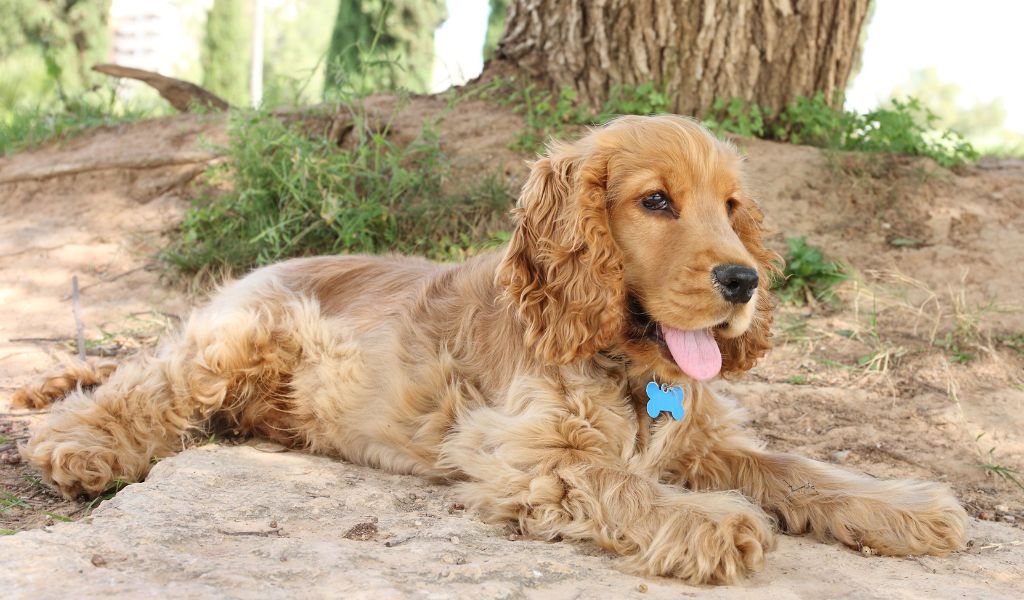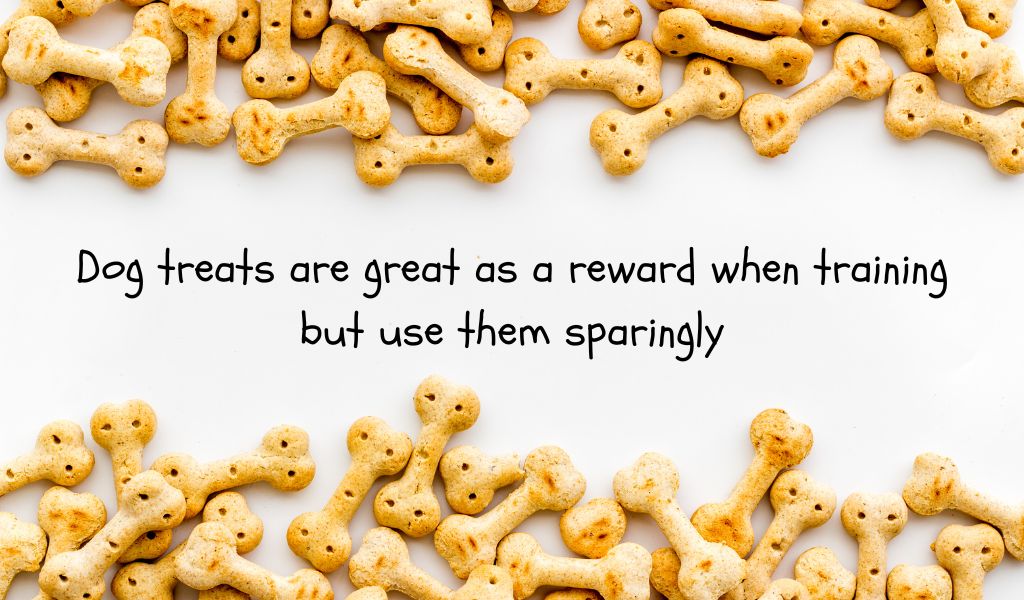Cocker spaniels are lovable and affectionate dogs, known for their intelligence, playfulness and obedience.
They are a popular choice for families and individuals alike and make great pets.
However, like all dogs, they require proper training to ensure they are well-behaved and safe.
Cocker spaniels are intelligent, active dogs that enjoy training and will, with the right approach, quickly learn what is required of them. With some basic guidance almost anyone can train a spaniel to a good standard.
Understanding your Cocker spaniel
To effectively train your Cocker spaniel, it is important to understand their unique personality and characteristics.
Cockers are highly intelligent, but can be stubborn at times.
They have a lot of energy and require regular exercise, but also love to cuddle and spend time with their owners.
The training that your Cocker will need.. ?
Most Cocker spaniel owners will want to train their dog to:
Hunt his ground if he is a working spaniel
Start training early
Many people will advise that you should start training when your spaniel reaches 6 months old, but, this is too late for basic exercises.
By 6 months your dog will have learned a lot, mostly bad habits that you’ll struggle to undo, therefore it’s important to begin basic exercises as soon as the puppy is old enough to go outside.
Your puppy will need to:
Understand his name
This is easy to do and can make all the difference when teaching him other commands.
When you call his name, give him a treat as a reward and he’ll soon learn to respond.
Sit down when told
You can do this easily at mealtimes by asking your pup to sit before they get their food. When they sit down give your puppy his meal.

Come when called
It’s vital that your puppy comes when you call him and this is one of the biggest problems that people have when their dogs get older.
When your puppy is playing, call him to you, encourage him to come and then give him a treat and make a big fuss of him. He will soon get the idea.
Stay in one place
This is an important command for dogs, as it helps keep them safe and can be helpful if you ever need to leave him unattended for a short period of time.
When you tell your pup to stay, make sure he understands what he needs to do and reward him with a treat when he does it.
Hunting the ground
A working Cocker spaniel will need to hunt the ground, covering it at a steady pace, within close distance of his handler.
The dog will need to cope with a variety of wind patterns and will need to learn how to use his nose while tackling a wide range of cover from rushes and fallen bracken through to brambles and more dense areas.
Retrieving
Most spaniels are natural retrievers and this can be put to great advantage when training a Cocker to retrieve.
As well as a fun activity, retrieving is an important aspect of a working spaniel’s life and a working Cocker will need to be able to deal with a variety of game, from birds through to rabbits and more.

Setting training goals
Before you begin training your Cocker spaniel, it is also important to set clear and achievable goals.
Consider what you want to achieve with your training and make a plan accordingly.
Whether you want to teach basic obedience commands, improve their socialization skills or eliminate bad behavior, setting goals will help keep you focused and on track.
The right environment for training
The environment in which you train your Cocker spaniel is critical to their success.
It should be quiet, calm and free from distractions, allowing your dog to focus solely on the task at hand.
In addition, the training environment should be safe and secure, with no potential hazards that could cause harm to your dog.
Positive reinforcement training techniques
Positive reinforcement is a highly effective training technique for Cocker spaniels.
This involves rewarding your dog for good behaviour, such as when they follow a command correctly.
This reinforces the desired behaviour and makes it more likely that they will repeat it in the future.
There are a variety of rewards that you can use as positive reinforcement, including treats, praise and playtime.
When using treats, make sure to choose healthy options that are appropriate for your dog’s size and age.
Consistent and patient training
Consistency and patience are key when it comes to training your Cocker spaniel.
It is important to provide consistent commands and to train your dog regularly, ideally on a daily basis.
This will help to reinforce the behaviour and make it more permanent.
In addition, it is important to be patient with your dog and not to expect too much too soon.
Training takes time and patience, so be prepared to invest the time and effort needed to help your Cocker spaniel reach their full potential.

Common training challenges and how to overcome them
Cocker spaniels can be prone to certain training challenges, such as stubbornness and distraction.
To overcome these challenges, it is important to remain patient , if your dog is struggling with something then it’s best to take a break and re-think your strategy and consider what you can do.
For example:
Could you do the training differently?
Are you being clear with your instructions so that you are not confusing your dog?
Is the environment suitable? Free of distractions such as other dogs, children, animals etc?
Is your dog fit and healthy? Illnesses can reduce your dog’s ability.
Are you rushing the training? Take some time out, let your spaniel have a break and do something that he understands. Go for some walks and let him rebuild his confidence.
Socialisation training
Socialisation is an important aspect of training for all dogs, including Cocker spaniels.
This involves exposing your dog to a variety of people, animals, and environments, in a positive and controlled manner.
Socialisation training will help your Cocker spaniel to become well-rounded and confident, reducing the risk of behaviour problems and increasing their enjoyment of life.
Continuing education
Training your Cocker spaniel is a lifelong process, and it is important to continue their education throughout their lives.
Consider enrolling your dog in obedience classes, agility training or other activities that will challenge them both physically and mentally.
This will help to reinforce their training and keep their minds active and engaged.
Tips for successful training
Here are some tips to help ensure success with training your Cocker spaniel:
Start training early
The earlier you begin training your Cocker spaniel, the better. Puppies are highly receptive to training and are more likely to develop good habits from the start.
Keep training sessions short
Training sessions should be short and sweet, lasting no longer than 10-15 minutes at a time. This will help to keep your dog’s attention and prevent boredom.
Use treats wisely
Treats are a great tool for positive reinforcement, but it is important to use them wisely. Too many treats can lead to weight gain, so be sure to choose healthy options and to only use them in moderation.
Stay positive
Positive reinforcement is the most effective training method, so be sure to use it whenever possible. Reward your dog for good behavior and provide plenty of praise and affection.
Be consistent
Consistency is key when it comes to training your Cocker spaniel. Make sure to use the same commands and training techniques each time, and to be consistent in your expectations and rewards.
The importance of exercise
In addition to training, it is important to provide your Cocker spaniel with plenty of exercise.
This will help to burn off energy, improve physical health and increase mental stimulation.
Regular exercise can also help to reduce the risk of behaviour problems and increase the bond between you and your dog.
Final Thoughts
Training your Cocker spaniel is an important aspect of responsible pet ownership.
By following the tips and techniques outlined in this guide, you can help your dog reach their full potential and enjoy a happy and well-behaved life.
With patience, consistency and positive reinforcement, you can train your Cocker spaniel to be a well-behaved and obedient companion.

